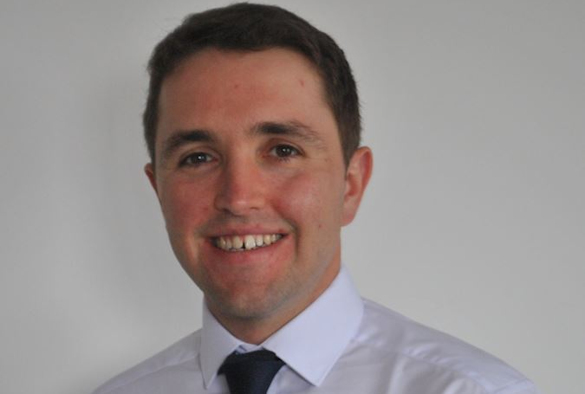Dr Jacob Heery wins 2021 IOP “Early Career” Prize in Nuclear Physics

Dr Jacob Heery, a recent University of Liverpool graduate, has been awarded the Institute of Physics (IOP) Early Career Prize in Nuclear Physics for 2021.
Jacob, a postgraduate student of Professor Rodi Herzberg, was recently awarded a Ph.D. for his thesis entitled “Developing a charge plunger method for lifetime measurements in heavy elements”. This work was performed at Jyväskylä, Finland, and involved the study of heavy elements around nobelium (Z = 102).
The constituent particles of an atomic nucleus are protons and neutrons (nucleons). These nucleons can often form exotic configurations, which are referred to as excited nuclear states. Over time these excited states will decay back down to their “normal” configuration, called the ground state, by the emission of a gamma ray. By studying how long an excited nuclear state exists for, it is possible to make assertions about the properties of the nucleus, such as its shape and the distribution of protons and neutrons.
Most nuclear exited states exist on very short timescales between 10-15-10-9 seconds, and different techniques are used to study their lifetimes. These techniques often rely on detecting the gamma ray that is emitted during the decay. Studying the lifetimes of excited states in the heavy elements above uranium (Z=92) is extremely difficult, not least because these elements do not occur naturally and so therefore must be produced at large accelerator facilities by colliding lighter atoms together at high energies, but also due to a phenomenon known as internal conversion. Internal conversion is a process whereby instead of a gamma ray being emitted during the decay of an excited state, an atomic electron is ejected from the atom. The probability that a state will decay via internal conversion instead of gamma emission is proportional to the number of protons in the nucleus and so therefore becomes dominant in heavy elements. The charge plunger method is designed specifically so that is does not rely on the detection of gamma rays and so overcomes the problem posed by internal conversion.
Jacob has now moved to a postdoctoral position with the Experimental Nuclear Physics group at the University of Surrey where he is continuing to study Nuclear Structure Physics.
The winning of this award means that Jacob will now present his research at this year’s IOP Nuclear Physics Conference, which will take place in Guildford in April.
Congratulations Jacob!